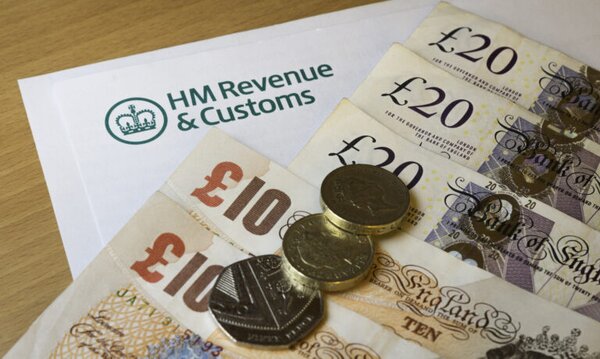Let’s Make It Simple
Tax credits are payments from the government that help with daily living costs. They’re especially helpful if you’re working but on a lower income.
There are two main types: Working Tax Credit for people in work with low incomes, and Child Tax Credit for those caring for children. Most new claimants now need to apply for Universal Credit instead of tax credits.
Tax credits are only available to those already receiving them or in special circumstances. Your eligibility depends on your working hours, income level, and family situation.
If you have children or work at least 16 hours weekly, you might qualify. It’s worth checking even if you’re unsure about your eligibility. Current benefits will be affected by the transition to Universal Credit, so it's important to understand how this change impacts you.
Tax credits have been replaced by Universal Credit for most people, and this transition will be completed by April 2025.
How exactly do you apply for tax credits?
Applying for tax credits starts with checking if you’re eligible using the calculator on GOV.UK. This gives you an estimate of what you might receive and helps determine if it’s worth proceeding.
Once you’ve confirmed eligibility, call the Tax Credit Helpline on 0345 300 3900. They’ll send you an application form to complete with all your relevant details.
Fill in all sections of the form with accurate information about your income, working hours, and family circumstances. Double-check everything before submitting to ensure all information is correct and to avoid delays in processing.
Return your completed form within the deadline given and keep copies of everything you send for your records. It is crucial to submit the form by the specified date to ensure timely processing. The HMRC will process your application and notify you of their decision within a few weeks.
Please note that new claims for Child Tax Credit or Working Tax Credit are no longer accepted. Individuals should consider applying for Universal Credit instead.

What information will you need to provide?
Before starting your application, gather your National Insurance number and your partner's if you have one. You'll need details of your income from the previous tax year, including any benefits received.
If you're claiming for childcare costs, have information about your provider and how much you pay. Bank account details are essential as payments go directly into your account.
For Child Tax Credit, have your child benefit reference numbers handy and details about your children's circumstances. Having all this information ready will make the application process much smoother.
When will you get your tax credit payments?
Once approved, payments usually arrive every four weeks directly into your bank account. You can request weekly payments if that works better for your budget management.
The amount depends on your personal situation and changes if your circumstances do. Payments continue throughout the tax year (6 April to 5 April), and you’ll need to renew annually. Note that tax credits ended on 5 April 2025.
You’ll receive a renewal pack each year that you must complete to keep receiving payments. I remember how relieved I was when my first payment arrived just as my boiler needed replacing – the timing couldn’t have been better. After 5 April 2025, individuals must apply for Universal Credit or Pension Credit instead.

What if your situation changes?
Report any changes within one month to avoid penalties or incorrect payments. Failing to report changes can result in your payments stopping. Changes to report include new relationships, jobs, working hours, income changes, or childcare arrangements.
Contact the tax credits helpline when things change, and they’ll adjust your payments accordingly. Some changes might increase your payments, while others could reduce them.
Always keep the reference number when reporting changes as proof you’ve updated your information. This simple step can save considerable hassle if there are ever questions about your claim. If there are discrepancies in your tax credit amounts, you have the option to appeal decisions by following the guidance provided by the Tax Credit Office.
Final Thoughts on Applying for Tax Credits
Managing taxes can be tricky, especially if you're self-employed or have multiple income sources. Pie is the UK's first personal tax app designed specifically for working individuals.
Unlike other solutions, Pie offers integrated bookkeeping, shows your tax figures in real-time, and simplifies the self assessment process. With Pie, you can stay on top of your tax obligations while maximising any credits you're entitled to.
Getting your tax credits right is just one part of smart financial management. Having the right tools makes everything easier and helps ensure you never miss out on support you're eligible for.











